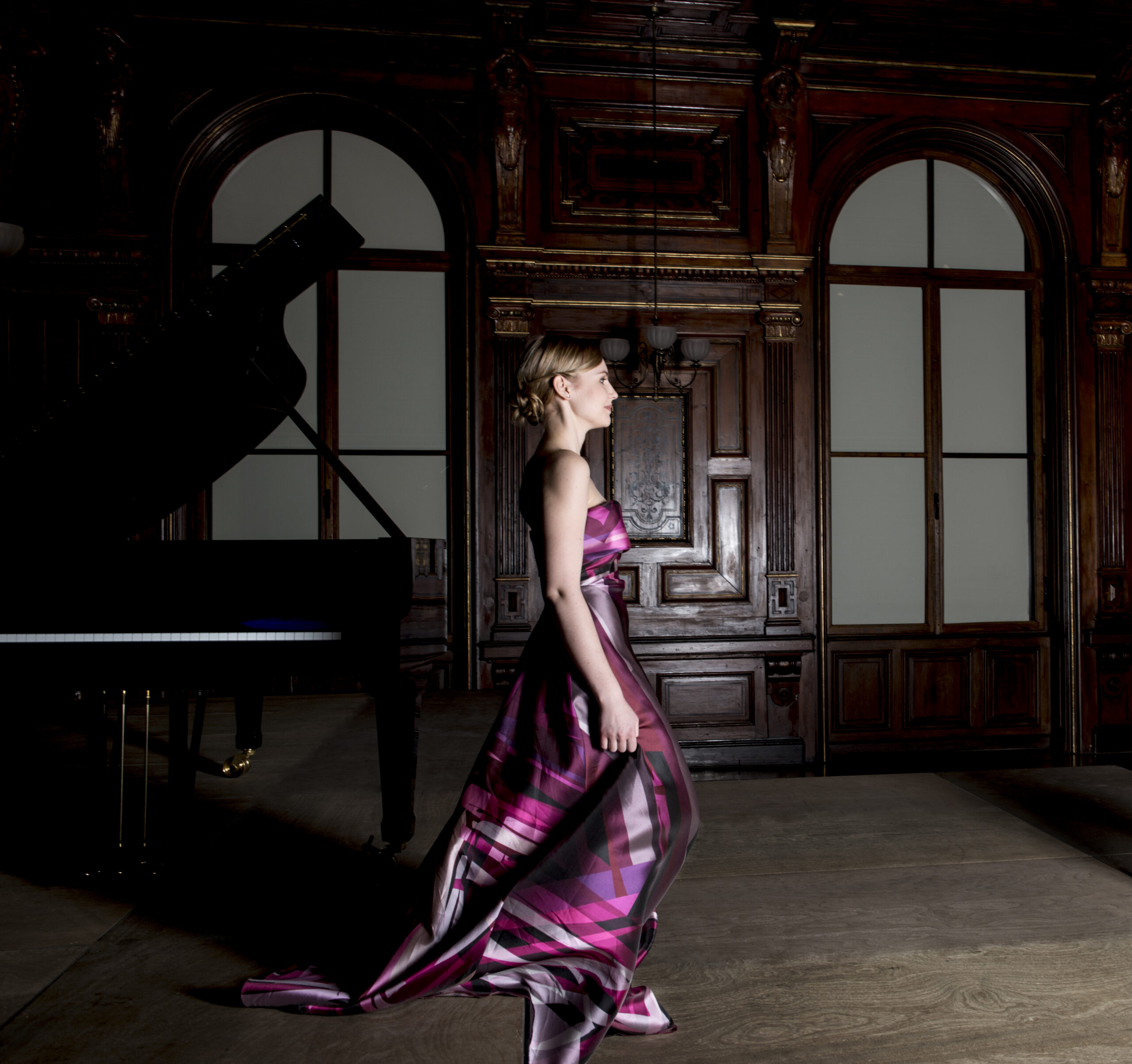Concert review by Hartwig Wolf, Liechtensteiner Vaterland, November 16th 2021.
Pianist Hanna Bachmann performed at the Sunday Soirée of the Rheinberger Society with a compelling overall dramaturgy.
Guests from neighboring countries also traveled to Vaduz on Sunday for the concert of the International Josef Gabriel Rheinberger Society (IRG) — no doubt drawn by the evening’s featured artist. Though now based in Vienna, Hanna Bachmann was raised in Feldkirch. At her recital in the Vaduz Town Hall, it was only natural that Josef Gabriel Rheinberger, the Society’s patron, featured prominently on the programme. As IRG president Jürg Hanselmann emphasized in his welcoming remarks, this was “a very special piano recital,” since the 28-year-old pianist had curated a carefully considered sequence of works centered around Rheinberger’s compositions.
The art of variation formed one unifying thread of the soirée, while the retrospective glance toward the Baroque era provided another. Both came to life in musical references by Johannes Brahms and Josef Gabriel Rheinberger to Georg Friedrich Handel: In their characteristically Romantic historicism, the two friends created extensive variation cycles on Handel’s themes. In her programming, Hanna Bachmann succeeded in highlighting not only this connection, but also the personal and artistic links between Brahms and Rheinberger.
Intellectual coherence
This Sunday concert proved a true stroke of fortune for the Rheinberger Society, not only because of the ingenious programming but also thanks to Bachmann’s pianistic artistry. She began her recital with Handel’s Chaconne in G major, HWV 435. In its earliest version, composed when Handel was just 20, the theme appears dry and unadorned. Bachmann performed a later printed version, lavishly embellished with mordents and trills. Her firm touch gave the performance a certain hardness, but it also brought clarity to the ensuing 21 variations over the ostinato bass, particularly in the left-hand scales and inner-voice passages. She chose a steady pulse, free of exaggerated rubato, and balanced dynamics that kept the music transparent and comprehensible.
With Rheinberger’s music, she cultivated a completely different sound world. Dark warmth and velvety tone coloured her interpretations of his Three Studies, Op. 6 and Two Piano Pieces, Op. 45, both including variation cycles. Bachmann offered them in a richly nuanced manner, with tasteful rubato and well-placed accents. Here she was able to revel in the Bösendorfer’s pliant sonorities and to set radiant highlights.
A pianistic tour de force
“It is a joy to be playing Rheinberger now,” she remarked, noting that these were her first solo performances of his piano works. Two years ago, however, she had already presented Rheinberger’s Kinderlieder together with students of the Vorarlberg Conservatory. She has appeared in Liechtenstein on several other occasions as well, most recently with Moritz Huemer at this year’s Holocaust Memorial Day. Bachmann has been supported by institutions such as the local Musik & Jugend Foundation and studied, among others, with Florian Krumpöck, former chief conductor of the Liechtenstein Symphony Orchestra.
Differentiated characterizations
With his Handel Variations, Op. 45, Rheinberger created a double homage: honoring the Baroque master while dedicating the work to his friend Johannes Brahms. Brahms, too, had composed variations on a Handel theme — an aria serving as the starting point for 25 variations culminating in an orchestral-scale fugue, a tour de force demanding everything from the performer. Hanna Bachmann presented these divergent characters with refined suppleness and a thoughtful, targeted use of her pianistic resources. Enthusiastic applause greeted her performance, to which she responded with an encore: a stylized Habanera for the left hand alone, by the Mexican composer Manuel Ponce.
